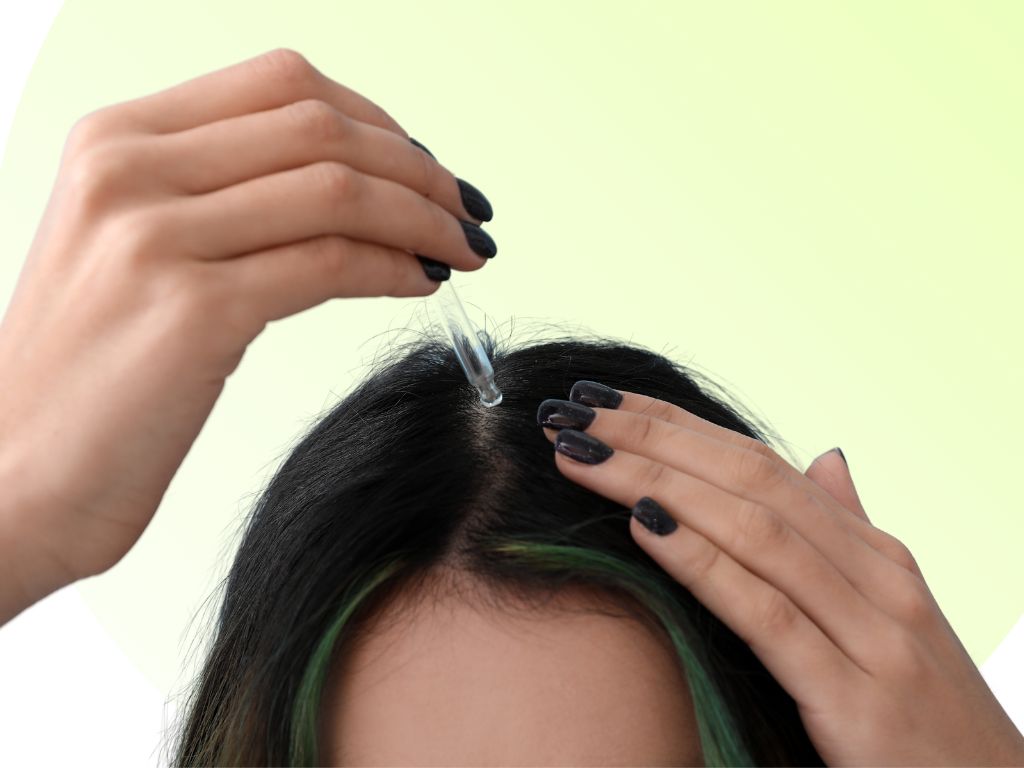Everything You Need to Know about Minoxidil
We talk a lot about hair loss here on In The Lab - from preventing hair loss, to regrowing lost hair, even to preventing breakage, which can appear as hair loss. But we haven't yet dug into one of the most popular treatments for hair loss: Minoxidil. Minoxidil is a topical solution that has been clinically proven to promote hair regrowth in both men and women. However, like any hair loss treatment, Minoxidil comes with its own set of benefits and potential concerns, so we’re digging into the pros and cons of using Minoxidil-based products to stimulate hair growth so that you can make an informed decision about whether it's right for you.
The Benefits of Minoxidil
Effective Hair Regrowth: One of the most significant benefits of Minoxidil is its proven effectiveness in stimulating hair regrowth. Clinical studies have shown that Minoxidil can help to increase the size of hair follicles, prolong the growth phase of the hair cycle, and promote the regrowth of hair in areas affected by hair loss.
Easy to Use: Minoxidil is typically available as a topical solution or foam that is applied directly to the scalp once or twice daily. This makes it a convenient option for those looking to incorporate a hair growth treatment into their daily routine without hassle.
Over-the-Counter Availability: Unlike some prescription hair loss treatments, Minoxidil is available over the counter at most pharmacies and drugstores. This accessibility makes it a popular choice for individuals seeking a non-prescription solution to their hair loss concerns.
Minimal Side Effects: For the majority of users, Minoxidil is well-tolerated and associated with minimal side effects. The most common side effect is scalp irritation, which typically resolves with continued use or by switching to a lower concentration formula.
Potential Concerns with Minoxidil
Initial Shedding: One common concern with Minoxidil is the phenomenon known as "shedding," where users may experience increased hair loss in the first few weeks of treatment. This can be alarming for some individuals, but it's often a sign that the product is working to stimulate new hair growth, and the shedding usually subsides over time.
Dependency: Minoxidil is not a permanent solution to hair loss, and its benefits only persist as long as the treatment is continued. Once you stop using Minoxidil, any new hair growth stimulated by the medication may gradually be lost over time.
Scalp Irritation: While most users experience minimal side effects with Minoxidil, some individuals may develop scalp irritation, redness, or itching. This can be uncomfortable and may necessitate discontinuation of the treatment or switching to a lower concentration formula.
Limited Efficacy: While Minoxidil can be effective for many users, it may not produce significant results for everyone. Factors such as the underlying cause of hair loss, the stage of hair loss, and individual response to the medication can influence its efficacy.
Pregnancy & Breastfeeding: As we often see, there are very limited studies done on the potential effects of Minoxidil use during pregnancy or breastfeeding; however doctors advise against Minoxidil use during pregnancy as Minoxidil’s vasodilatory properties may increase blood flow to the placenta, raising concerns about possible adverse effects on foetal growth and development. There are also studies on individuals who’ve used Minoxidil during pregnancy, but because these are not controlled, robust studies, the experiences of few cannot be extrapolated to all.
Minoxidil can be an effective option for stimulating hair growth and combating hair loss in both men and women. However, it's essential to weigh the potential benefits against the possible concerns and consult with a healthcare professional before starting any new hair loss treatment regimen. By understanding the pros and cons of Minoxidil, you can make an informed decision about whether it's the right choice for your hair restoration journey.

